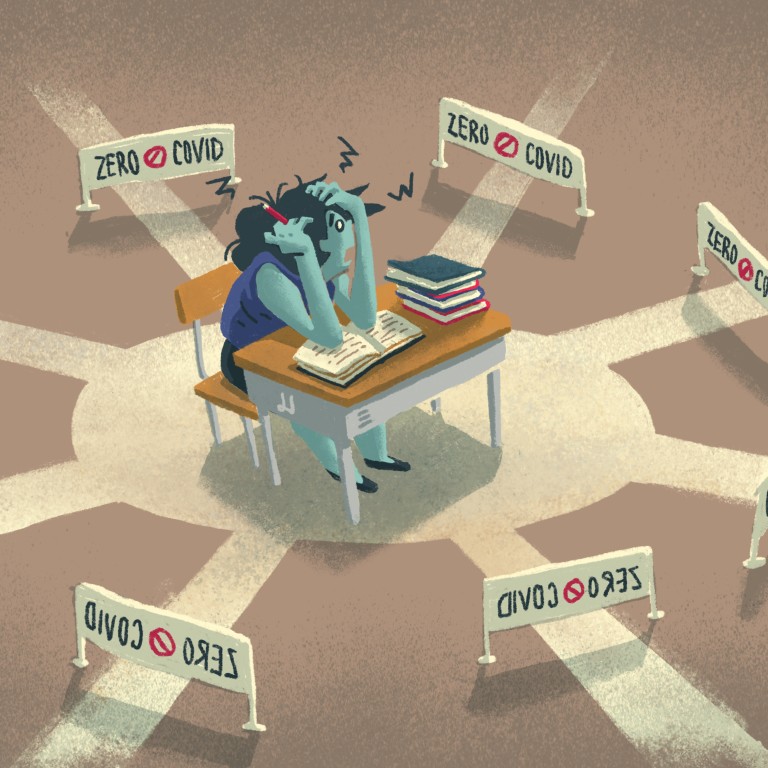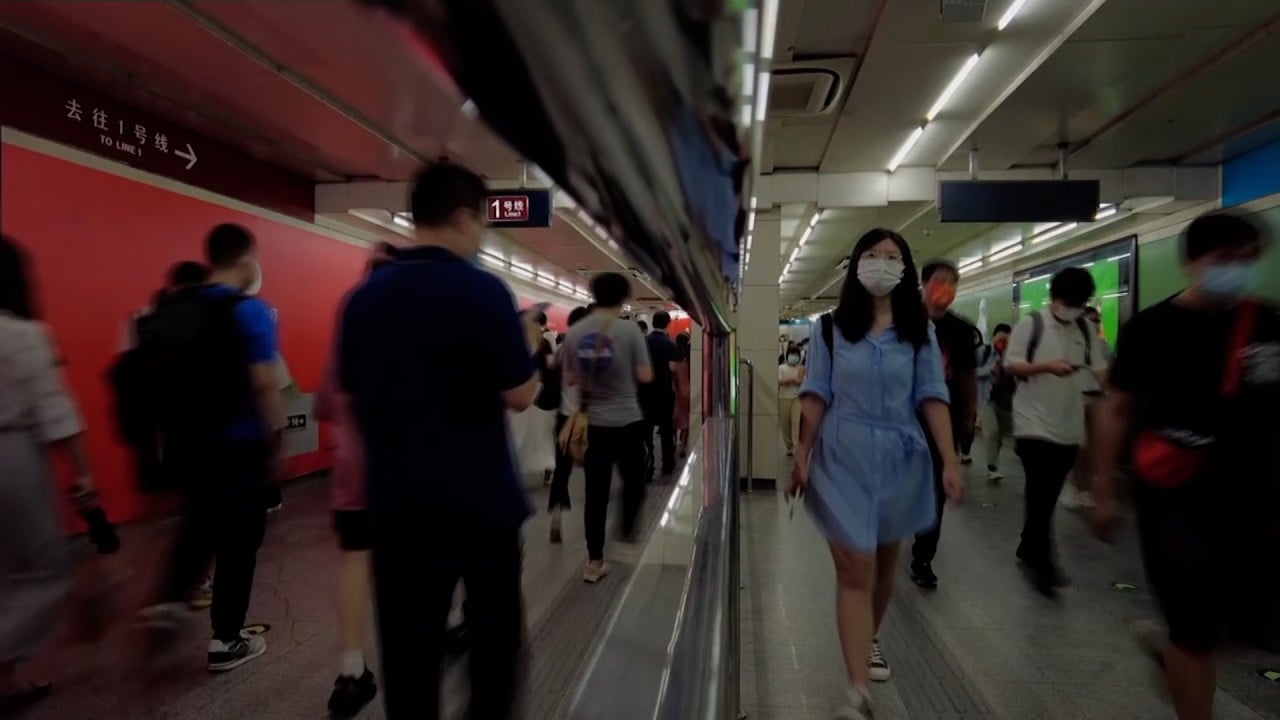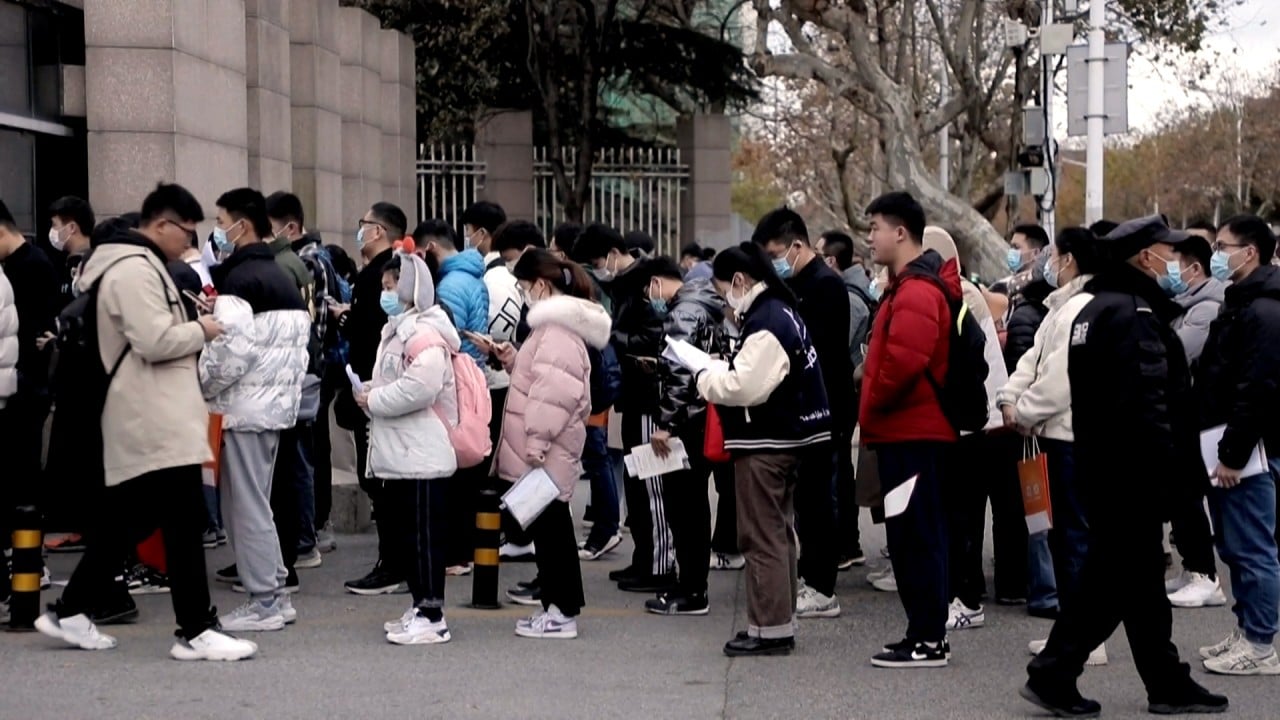
As young Chinese with ‘no desire to fight’ take pandemic path to adulthood, the impact will be felt for years
- Instead of leaving the nest and spreading their wings at university, China’s coming-of-age youth are relegated to a life of lockdowns, uncertainties and rising mental anguish
- Ambitions are dwindling, and there’s a rising desire for a peaceful and stable life in chaotic times, with dreams left by the wayside
In his final year at Shenyang University, Wu Zhiming’s education has not only been blighted by Covid lockdowns, it’s been devoid of the social element that helps shape what are often the most formative years of adulthood.
The 23-year-old senior hardly associates with any of his classmates, having had little chance to get to know them during the mere three months that he was on campus from October to December last year. That was before recurrent coronavirus outbreaks forced him to return to his home province of Gansu – more than 2,000km away – where he was again relegated to remote learning.
In the early days of the pandemic, remote online courses became the global norm. Though as most countries embraced vaccines, and their people resumed normal activities, universities reopened to on-campus learning.
But for Wu and millions of other students across China, nearly the entirety of their college lives have occurred away from campus, as the government’s persistent zero-Covid policy entails highly disruptive coronavirus-containment measures, including occasional citywide lockdowns and strict controls on movement between provinces.
[Pandemic life] has left me with no desire to fight for the future. Now I just want to live a peaceful life without ambition
As a result, researchers – and students themselves – are warning of the possible long-term implications from what has become a stagnated transition from adolescence to adulthood. Meanwhile, China’s “economic shocks” are also expected to have a profound impact on the choices that young adults make in both life and their careers.
Wu, who is studying automotive engineering, said the tumult of the past few years under zero-Covid has deprived students of countless opportunities to study and travel, stripping them of freedom at a time when they are meant to be embracing it.
And personally, it has made him mentally and emotionally deflated, with little to strive for.
“I didn’t know whether I should prepare for the postgraduate exam or look for a job,” said Wu, whose career plans were upended by lockdowns. “I am very confused.
“It’s left me with no desire to fight for the future. Now I just want to live a peaceful life without ambition.”
What is ‘lying flat’, and why are Chinese officials standing up to it?
But its underlying cause continues to be hotly debated. Some say it boils down to laziness, while others contend that it’s the inevitable result of the intense strain that young adults have come under as they face never-before-seen hurdles to adulthood.
“Their scope for choice has narrowed, and they are afraid to venture into other options,” Yu said. “[Young people’s mental issues] can put a burden on society, but it’s up to society to undertake and absorb this load, as these issues have been brought on by society itself.”
The China Population and Development Research Centre attributes the falling fertility rate to a range of factors, including health conditions, household income, and drastic changes in the socioeconomic environment. Diminishing mental health could also be a factor.
Depression among students has become more prevalent during the pandemic. The National Depression Blue Book 2022 – compiled by China’s Depression Research Institute – says students now account for more than 50 per cent of depression cases nationwide. In their 2019 research, the figure was 23.8 per cent.
Kong Mingxu, a 20-year-old university student in Nanjing, said his school’s psychological counselling service is often fully booked.
“Our school even invited a director from the local psychiatric hospital to give us a talk,” Kong said.
He attributed students’ mental health struggles to the university’s closed-campus policy, which mandates cumbersome hotel quarantines for those who return to campus.
“Some people who go off campus to have teeth removed need to return to the school’s quarantine hotel for three days, even after review,” Kong said. “Their academic progress can be delayed.”
I really just want to live in peace and don’t want to step into this chaotic society
Kong has lived on campus since entering university last year, and he has had to quarantine once, after returning from a high-risk area.
“I’ve never experienced what a campus could truly be like without the pandemic,” Kong lamented. “It has taught me not to prematurely set goals and preconceptions, because there’s really a lot of uncertainty in life.”
Kong’s career aspirations have also changed. Rather than follow his dream of being a choreographer, he intends to become a college professor. It’s a way for him to stay on campus – a place where he has found solace and comfort in distressing times.
“I really just want to live in peace and don’t want to step into this chaotic society,” he added, explaining how pandemic-induced bouts with depression and anxiety forced him to put greater focus on his mental health.
Human cost of China’s zero-Covid policy measured in stress, anxiety
Gao Xinwen, a 21-year-old at a Shanghai university, said the city’s lockdowns this year took a heavy emotional toll on herself and other students. “Everyone was in a bad mood,” she recalled, adding that online forums for students featured more discussions about depression and even suicide.
Gao sometimes reflects on what it was like before the pandemic, “when the school was full of tourists and international students and we were free”.
Today, Gao now considers herself less inclined to try new things than she used to be. “I now think twice, balancing the risks as I become more cautious,” she said.
She has also said goodbye to her dream of being a screenwriter, as the film industry in China has withered under the pandemic, forcing her to explore more secure and stable public sector jobs.
“During times of overwhelming pressure, I make myself a mind map by writing down every exit path clearly,” Gao said of her approach to dealing with mental stress. “And in the end, I find there is always a way out.”
The pandemic has also given Gao a chance to reassess her life. Now she pays more attention to developing deeper relationships while lowering her career expectations.
And she admits that, like others around her, she has embraced the lying-flat mentality while striving to “attach more importance to my emotional values, as well as my inner voice”.
“After lying flat, I was less traumatised or affected by the various ripples of the pandemic,” Gao said. “All roads lead to Rome. I just have to accept it and put my feet on the ground.”
Covid-19 increases ‘sense of preparedness’, as China’s youth save, don’t spend
He Guojun, an associate professor of economics at the University of Hong Kong who specialises in environmental, development and governance issues, said there is no shortage of economic literature documenting how exposure to negative economic shocks affects individuals’ life choices.
He said this helps explain why the younger generation, compared with their parents, have become more interested in civil service work, particularly as China’s coronavirus controls have taken such a hefty toll on private enterprises.
“Young people will, on average, become more risk-averse, making them less likely to start their own business, borrow money, and invest in more volatile markets,” He said.
The generational impact will span “many years”, the economist warned, and ultimately it could “mean greater inequality” for China.



